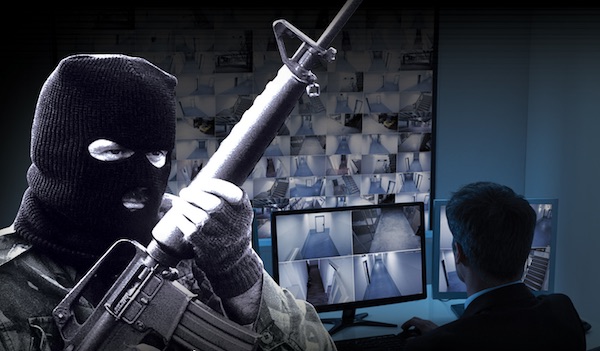
A former British army soldier has admitted he planted listening devices in the homes of senior politicians in the north of Ireland, years after the 1994 ceasefires and some still thought to be in use today.
The former intelligence soldier revealed that many of the tiny cameras and minute bugs he hid all over the Six Counties were still in place long after he left a secret military unit.
Senior Sinn Fein members were still being targeted in secret surveillance operations at least until the 2000s, he said.
Sean Hartnett (not his real name), revealed that British military intelligence in the early 2000s hid tiny cameras and bugs in various places, including one inside Altnagelvin hospital in Derry, as part of its secret war. He said many were probably still in place.
Hartnett’s memoir focuses on the seven years he served in the ‘Joint Communications Unit Northern Ireland’, formerly the murderous Force Research Unit, also known as ‘the Det’.
One of the undercover units he was working for was prepared to carry out a shoot-to-kill operation against dissident republicans thought to be planning an attack outside a British army base in County Tyrone in 2002.
The revelation in his book, ‘Charlie One’, appears to confirm that the notorious British policy of planned state killings continued well after the signing of the Good Friday peace agreement in 1998.
“My colleagues told me they were determined to take them out as one of them had been responsible for the murder of a police officer during the Troubles. Those Real IRA pair do not realise how lucky there were.”
He said at the time he had concerns about giving the organisation “legitimacy”.
“It wasn’t necessary, we could have taken them easy enough without killing them,” he said.
The 40-year-old former military spy-technician, who was born in Cork, said he would not return to Britain because he feared he could be arrested and prosecuted for breaching the Official Secrets Act.
In media interviews in Ireland, Hartnett said the devices he used while tracking republicans and gathering “political intelligence” on Sinn Fein were now even more advanced.
“Northern Ireland is awash with bugs and secret cameras because, after all, we never went about taking them out when our operations were ended,” he said.
Hartnett said one he planted in Altnagelvin hospital in Derry to listen in conversations among republicans is “probably still there”.
He said his book originated while he was undergoing therapy for post-traumatic stress disorder after being discharged from the undercover army regiment in 2005.
“My counsellor told me to write down all my experiences of the secret war and having amassed so many stories of my time in ‘the Det’ I realised there was a book in this.
“I don’t know if the British authorities will prosecute me for telling my story but I am not taking any chances and won’t be back in the UK again. But out of therapy came this book and it’s my story which I had to tell.”
SURVEILLANCE STATE
With tiny hidden cameras and high-powered bugs the size of a box of matches, the equipment used by the ‘Joint Communications Unit - Northern Ireland’ are far more sophisticated than the giant battery-pack devices used in the 70s and 80s.
He reveals how the British use mobile phone GSM technology on spying missions to transmit signals via the phone network. He also casts a light on the stealth tactics used to steal cars owned by suspects in order to place trackers and bugs in them before returning the vehicle.
The ability of his unit to jam radio frequencies used by CCTV cameras in order to gain access to target buildings unnoticed is also highlighted. Another is responsible for producing cameras hidden in rocks and trees that can then be deployed against targets.
Hartnett also revealed that his unit used a series of overt and covert cameras, some with the capability of reading a number plate up to 1.8 kilometres away.
He says the cameras uses a vast network of encrypted fibre optic cables have been installed across the north for the “exclusive use of British intelligence”.
Among those he said were bugged by his unit were Sinn Fein’s Martin McGuinness, his brother Willie, Derry Assembly member Raymond McCartney and his brother Andrew. It is known that in 2002, a British soldier who had sneaked into McCartney’s empty house to fit devices left an intelligence file behind by mistake.
“Look that was our job, anybody of any significance within our area of responsibility which ran from Portrush and Portstewart down to the border, so that’s anybody in Derry, Strabane, all the way down,” he said.
“It’s obvious both the McCartney brothers were under surveillance, so was Martin and Willie McGuinness, they would have been under heavy surveillance.... Anybody who is anybody was under surveillance of some form or another.”
The former soldier said he considers himself a republican and votes for Sinn Fein.
“Sinn Fein are probably the best option for a change in Irish politics, to change the way this country is run,” he said.
“I have always voted for Sinn Fein - even all the time I was serving in Northern Ireland I still viewed them in the same way, I still had the same respect for them.”
However, he added that he has concerns about “a few individuals who turned coat a long time ago, which I don’t have any objection to but don’t try and present a public perception that you were a die-hard republican when you weren’t”.
“If you had lost that fervour in a cause, it’s fine,” he said.
“A lot of people came out of prison and decided it wasn’t for them any more and there’s nothing wrong with that. But to carry it on knowing that you were providing information to the other side the whole time, that I find difficult.”
![[Irish Republican News]](https://republican-news.org/graphics/title_gifs/rn.gif)
![[Irish Republican News]](https://republican-news.org/graphics/title_gifs/harp.gif)

